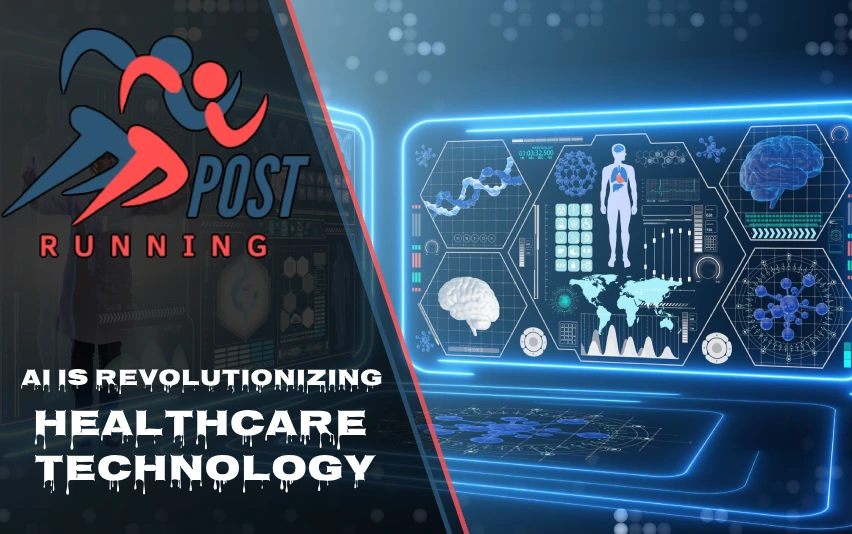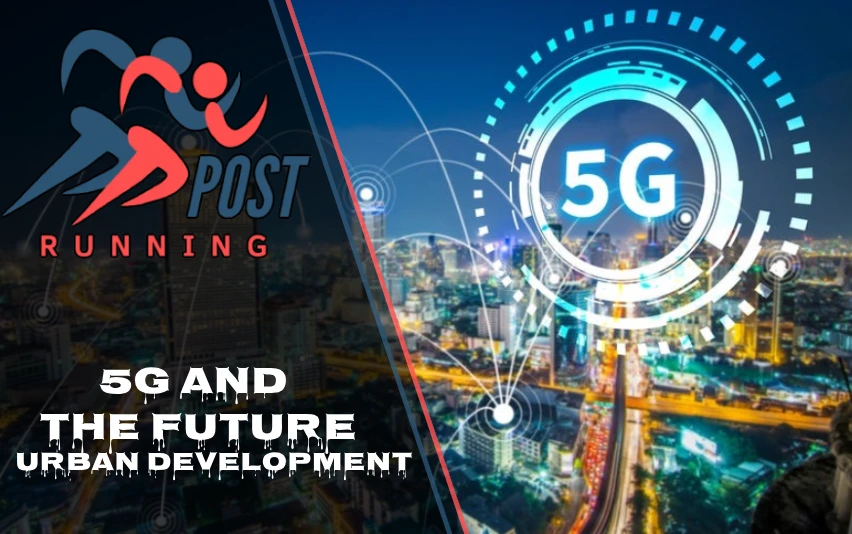Artificial Intelligence (AI) is rapidly transforming the healthcare landscape, ushering in a new era of medical innovation and patient care. From diagnosis to treatment, AI is revolutionizing healthcare technology in ways that were once thought impossible. This article explores the profound impact of AI on healthcare, its key applications, and the challenges that lie ahead.
Introduction
In recent years, the healthcare industry has witnessed a seismic shift with the integration of AI technologies. How AI is revolutionizing healthcare technology is a topic of immense interest and importance. The potential of AI to improve diagnostic accuracy, streamline processes, and enhance patient outcomes is nothing short of remarkable. What’s even more astounding is the projected growth of AI in healthcare – experts predict a staggering 1700% increase by 2030 compared to 2021.
This exponential growth isn’t just a number; it represents a fundamental change in how we approach healthcare. AI is not just an add-on to existing systems; it’s becoming an integral part of medical practice, promising to make healthcare more efficient, accurate, and personalized than ever before.
Key Applications of AI in Healthcare
The impact of AI in healthcare is far-reaching, touching almost every aspect of the medical field. Let’s delve into some of the key areas where AI is making significant strides.
Disease Diagnosis and Prevention
One of the most exciting ways how AI is revolutionizing healthcare technology is in the realm of disease diagnosis and prevention. AI systems are capable of analyzing vast amounts of medical data, including patient records, genetic information, and even lifestyle factors, to identify patterns and risk factors that might escape the human eye.
For instance, AI algorithms have shown remarkable accuracy in detecting early signs of Alzheimer’s disease, sometimes years before symptoms become apparent. In emergency departments, AI-powered triage systems are helping to prioritize urgent cases, ensuring that critical patients receive immediate attention.
Moreover, AI is enhancing preventive care by predicting potential health issues before they occur. By analyzing a patient’s medical history and lifestyle data, AI can suggest personalized preventive measures, potentially saving lives and reducing healthcare costs in the long run.
Personalized Treatment
Personalized medicine is another area where AI is making significant inroads. By analyzing patient-specific data, including genetic information, AI can help doctors tailor treatments to individual patients. This approach, known as precision medicine, has shown impressive results.
In clinical trials for chronic diseases, AI-driven personalized treatment plans have improved patient outcomes by up to 45%. This is a game-changer in healthcare, moving away from the one-size-fits-all approach to a more nuanced, individualized strategy.
AI can also predict how a patient might respond to different treatments, helping doctors choose the most effective option with fewer side effects. This not only improves patient care but also reduces the trial-and-error approach often used in treatment selection.
Drug Discovery and Development
The pharmaceutical industry is another beneficiary of AI’s capabilities. Drug discovery and development is a time-consuming and expensive process, often taking years and billions of dollars to bring a new drug to market. AI is changing this landscape dramatically.
By using machine learning algorithms, AI can predict how different compounds will react in the body, significantly reducing the time and cost of clinical trials. AI can analyze vast databases of molecular structures, identify potential drug candidates, and even predict their side effects.
This acceleration in drug discovery could lead to faster development of life-saving medications and treatments for diseases that have long eluded effective therapies. It’s a prime example of how AI is revolutionizing healthcare technology and pharmaceutical research.
Virtual Health Assistants
AI-powered virtual health assistants and chatbots are becoming increasingly common in healthcare settings. These digital helpers provide 24/7 support, answering health-related questions, assisting with appointment booking, and even reminding patients to take their medications.
These virtual assistants can handle routine inquiries, freeing up healthcare professionals to focus on more complex cases. They can also provide initial symptom assessments, guiding patients on whether they need to seek immediate medical attention or if home care is sufficient.
Moreover, these AI assistants can learn from each interaction, continuously improving their ability to provide accurate and helpful information. As natural language processing technology advances, these virtual health assistants are becoming more sophisticated, offering more nuanced and personalized support.
Medical Imaging Analysis
In the field of radiology, AI is proving to be an invaluable tool. AI algorithms can analyze medical images such as X-rays, MRIs, and CT scans with incredible speed and accuracy. This doesn’t mean AI is replacing radiologists; rather, it’s augmenting their capabilities.
AI can quickly flag potential issues in medical images, allowing radiologists to focus their attention on the most critical cases. This not only improves efficiency but also reduces the risk of human error due to fatigue or oversight.
Furthermore, AI can detect subtle changes in images that might be imperceptible to the human eye, potentially catching diseases at earlier, more treatable stages. This application of AI in healthcare technology is saving lives by enabling earlier interventions and more accurate diagnoses.
Timeline of AI Advancements in Healthcare
To truly appreciate how AI is revolutionizing healthcare technology, it’s helpful to look at a timeline of key advancements:
| Year | Advancement |
|---|---|
| 2021 | AI demonstrates potential to enable healthcare systems to achieve their ‘quadruple aim’ |
| 2024 | AI manages over 85% of customer interactions in healthcare |
| 2025 | Projected widespread adoption of precision imaging and AI-enabled research hospitals |
| 2030 | Anticipated development of autonomous virtual health assistants and AI-driven drug discovery |
This timeline illustrates the rapid pace of AI integration in healthcare. From improving overall healthcare systems in 2021 to the anticipated autonomous virtual health assistants by 2030, the progression is both exciting and transformative.
The projection that AI will manage over 85% of customer interactions in healthcare by 2024 is particularly noteworthy. This shift towards AI-driven customer service could significantly improve patient experience and streamline administrative processes.
Looking ahead to 2025, the widespread adoption of precision imaging and AI-enabled research hospitals could revolutionize both diagnosis and medical research. By 2030, we may see fully autonomous virtual health assistants and AI-driven drug discovery, potentially leading to breakthroughs in patient care and pharmaceutical development.
Challenges and Considerations
While the potential of AI in healthcare is immense, it’s not without challenges. As we explore how AI is revolutionizing healthcare technology, it’s crucial to address these concerns:
- Ethical concerns regarding data privacy and security: As AI systems rely on vast amounts of patient data, ensuring the privacy and security of this sensitive information is paramount. There are concerns about data breaches, unauthorized access, and the potential misuse of personal health information.
- Need for regulatory frameworks: As AI becomes more integrated into healthcare, there’s a pressing need for comprehensive regulatory frameworks. These regulations should ensure the fairness, transparency, and accountability of AI systems in healthcare. They must also address issues of liability – for instance, who’s responsible if an AI system makes a mistake in diagnosis or treatment recommendation?
- Importance of human oversight: While AI can process vast amounts of data and identify patterns, the importance of human judgment in healthcare cannot be overstated. There’s a need to strike a balance between AI capabilities and human expertise. Healthcare professionals must be trained to work alongside AI systems, understanding their strengths and limitations.
- Bias in AI systems: AI systems are only as good as the data they’re trained on. If this data is biased – for instance, if it underrepresents certain demographic groups – the AI’s decisions could perpetuate or even exacerbate health disparities. Ensuring diversity and representativeness in training data is crucial.
- Integration with existing systems: Implementing AI systems in healthcare often requires integration with existing IT infrastructure. This can be challenging, especially for healthcare providers with older systems or limited resources.
- Cost and accessibility: While AI has the potential to reduce healthcare costs in the long run, the initial investment can be substantial. There’s a risk that advanced AI-driven healthcare could widen the gap between those who can afford it and those who can’t.
- Continuous learning and updating: AI systems need to be continuously updated with the latest medical knowledge and research. Ensuring that AI systems stay current with rapidly evolving medical science is a significant challenge.
Addressing these challenges will be crucial as we continue to explore and implement AI in healthcare. It will require collaboration between technologists, healthcare professionals, policymakers, and ethicists to ensure that AI is used responsibly and effectively in healthcare settings.
Conclusion
The revolution of AI in healthcare technology is well underway, and its potential is vast and exciting. From improving diagnostic accuracy and enabling personalized treatments to streamlining administrative processes and accelerating drug discovery, AI is transforming every aspect of healthcare.
As we’ve seen, AI is enhancing disease diagnosis and prevention, enabling truly personalized medicine, revolutionizing drug discovery and development, providing round-the-clock support through virtual health assistants, and augmenting medical imaging analysis. The projected growth and timeline of advancements suggest that AI will become increasingly integral to healthcare in the coming years.
However, as with any transformative technology, the integration of AI in healthcare comes with challenges. Addressing concerns about data privacy, developing appropriate regulatory frameworks, ensuring human oversight, and tackling issues of bias and accessibility will be crucial in realizing the full potential of AI in healthcare.
Despite these challenges, the future of AI in healthcare looks promising. As the technology continues to evolve, it has the potential to significantly enhance patient care and outcomes while potentially reducing healthcare costs. The key will be to harness the power of AI responsibly, always keeping the well-being of patients at the forefront.
In conclusion, how AI is revolutionizing healthcare technology is a story of innovation, challenge, and immense potential. As we move forward, the synergy between human expertise and AI capabilities promises to usher in a new era of healthcare – one that is more precise, personalized, and effective than ever before.
Discover more fascinating insights—explore Running Posts today.















